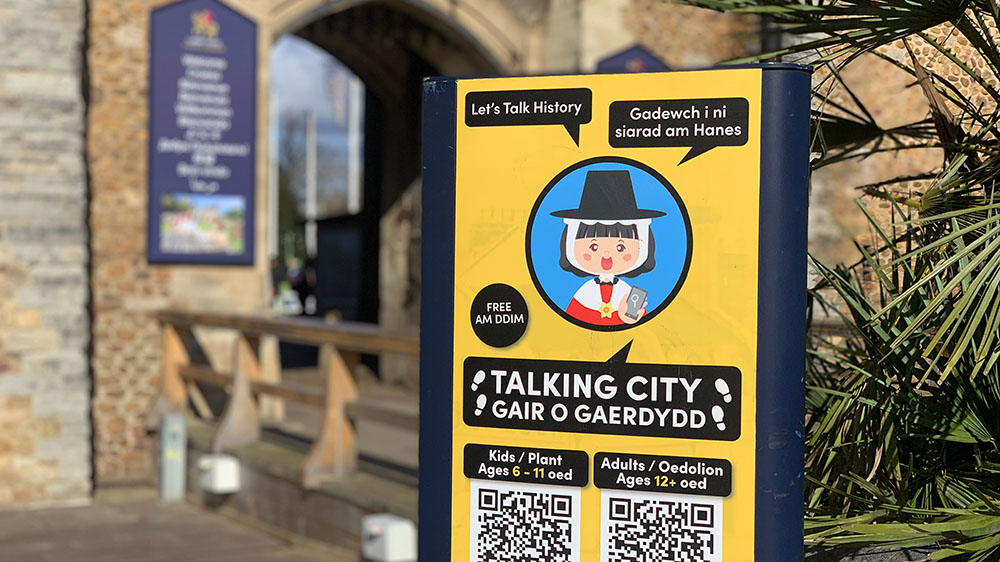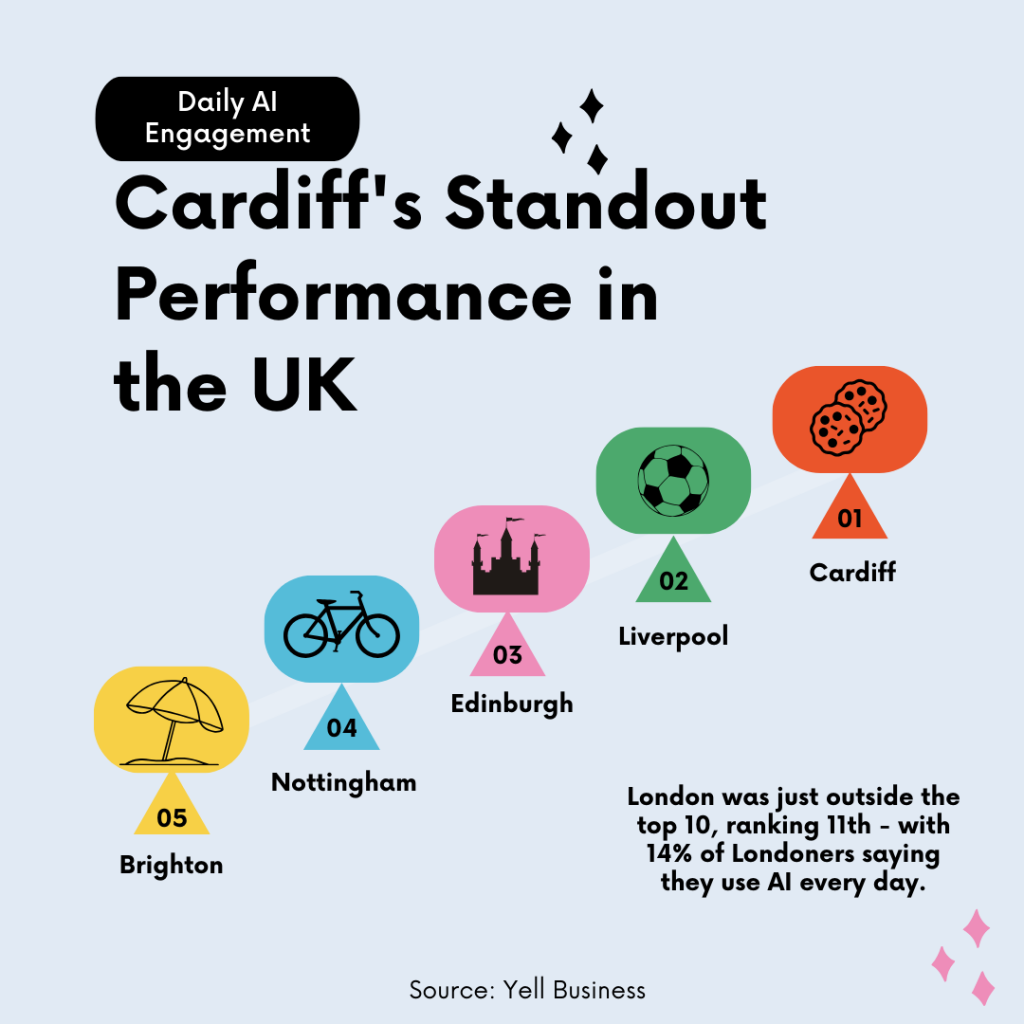People in Cardiff are shown in a survey to be the most AI-savvy in the UK, with a significant proportion of residents engaging with AI on a daily basis, What sets Cardiff apart?

Tourists to the Welsh capital are going to be the first in the country to experiment with a new AI walking tour.
The Talking City Trail will allow visitors to pull out their mobile phone and scan QR codes around the city to interact with a virtual guide, Ceri, who will share facts, ask questions and send pictures, audio and video of specific locations through a two-way conversation.
“We are thrilled to bring this new, free attraction to Cardiff city centre. Using innovative AI technology, the Talking City Trail will give families, residents, and visitors an exciting way to explore the capital while learning about its rich history,” said Carolyn Brownell, Chief Executive (Interim) of FOR Cardiff.
The Talking City Trail was created by tech start-up Hello Lamp Post, whose mission is to humanize urban spaces through technology and make cities more human. They hope one day to help every town, city and organisation to use their technology in a mindful, responsible way and help empower the communities they serve.

“We are delighted to partner with FOR Cardiff in bringing the Hello Lamppost tour to the brilliant city of Cardiff. Our mission has always been to provide unique, immersive and meaningful experiences that foster connections between individuals and their environment,” said Tiernan Mines, CEO & Co-Founder of Hello Lamp Post.
“This collaboration exemplifies our commitment to pushing the boundaries of interactive technology and forging new paths for future AI-driven encounters.”
The Talking City Trail represents Cardiff’s fresh venture into integrating AI within the tourism, but it appears that there is still a considerable way to go in achieving a seamless AI-powered experience.
“The Talking City Trail is certainly convenient; just scan a code, and you’re ready to go with just your phone—no reservations needed. But for an AI application, it doesn’t quite live up to the ‘intelligence’ part. I hoped for unrestricted interaction, but many responses felt pre-programmed, and the conversation tended to steer quickly towards an end, which was quite different from what I expected,” said Emily Sutton, a tourist from Birmingham.
This is typical of the kind of AI innovation that is happening in Cardiff. Recently, the city was voted one of the most tech-savvy in the country, with 23% of residents saying they used various forms of AI on a daily basis, significantly above the UK average of 15%.

Researchers at Cardiff University are also trying to explore the possibilities of AI in more areas, aiming to propel the UK to the forefront of advanced AI research.
“We will deliver cutting edge research to optimise ‘smart’ human and AI decision making for key areas such as environmental intelligence, financial stability, healthcare ecosystems, pandemic resilience, and smart city design,” said Phillip Morgan, Professor of Cardiff University’s School of Psychology.
“I’m particularly looking forward to co-leading the human-centred design theme which is vital to developing AI for collective intelligence within our identified domains. We will apply methods from cognitive and social psychology and human factors to derive human-centred design principles for effective trustworthy AI agents that achieve behavioural change at scale within socio-technical human-AI collectives.”
